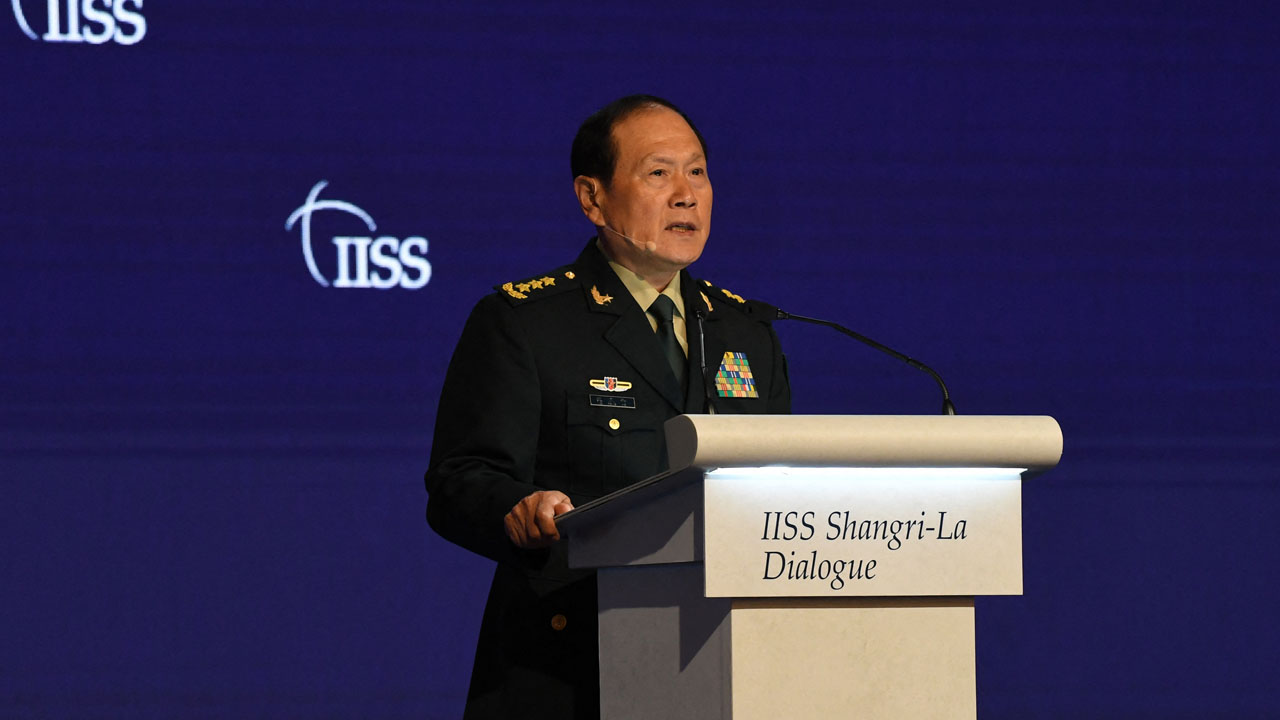
China will “fight to the very end” to stop Taiwanese independence, the country’s defence minister vowed Sunday, stoking already soaring tensions with the United States over the island.
The superpowers are locked in a growing war of words over the self-ruled, democratic island, which Beijing views as part of its territory awaiting reunification.
Frequent Chinese aircraft incursions near Taiwan have raised the diplomatic temperature, and on Saturday US Defense Secretary Lloyd Austin accused Beijing of “destabilising” military activity, in a speech to the Shangri-La Dialogue security summit.
Defence Minister Wei Fenghe hit back in a fiery address at the same event, saying Beijing had “no choice” but to fight if attempts are made to separate Taiwan from China.
“We will fight at all cost, and we will fight to the very end,” he told the summit, which brings together defence ministers from Asia and around the world.
“No one should ever underestimate the resolve and ability of the Chinese armed forces to safeguard its territorial integrity.”
“Those who pursue Taiwanese independence in an attempt to split China will definitely come to no good end,” he added.
Wei urged Washington to “stop smearing and containing China… stop interfering in China’s internal affairs and stop harming China’s interests”.
But he also struck a more conciliatory tone at points, calling for a “stable” China-US relationship, which he said was “vital for global peace”.
During his address, Austin stressed the importance of “fully open lines of communication with China’s defence leaders” in avoiding miscalculations.
The pair held their first face-to-face talks on the sidelines of the summit in Singapore on Friday, during which they also clashed over Taiwan.
Tensions over Taiwan have escalated in particular due to increasing Chinese military aircraft incursions into the island’s air defence identification zone (ADIZ).
President Joe Biden, during a visit to Japan last month, appeared to break decades of US policy when, in response to a question, he said Washington would defend Taiwan militarily if it was attacked by China.
The White House has since insisted its policy of “strategic ambiguity” over whether or not it would intervene had not changed.
Disputed sea ‘rampage’
Despite the heightened tensions, analysts said the fact Austin and Wei were willing to meet in person offered a small sign of hope.
“Talking is better than not talking,” Ian Chong, associate professor of political science at the National University of Singapore, who is attending the summit, told AFP.
“But I think at this point, we won’t be seeing any breakthroughs. Maybe it’ll lead to something in future.”
The dispute is just the latest between Washington and Beijing, who have clashed over everything from the South China Sea to human rights and Russia’s invasion of Ukraine.
China’s expansive claims to the sea, through which trillions of dollars in shipping trade passes annually, have stoked tensions with rival claimants Brunei, Malaysia, the Philippines, Taiwan and Vietnam.
China, whose historical claims were rejected in a landmark 2016 Hague ruling, has been accused of flying its planes and sailing its boats close to the coastlines of rival claimants, and of intercepting patrol planes in international airspace in a dangerous fashion.
While the superpowers traded blows, there were more positive signs for Australia and China’s strained ties as the countries’ defence ministers met for the first time in three years.
Richard Marles held talks for over an hour with Wei on the sidelines of the summit, which wrapped up Sunday.
Relations had grown frosty of late over issues including Canberra’s call for an independent probe into the origins of the coronavirus pandemic, with China responding by imposing tariffs and disrupting more than a dozen key industries.
In a change of tone to the gathering’s geopolitical sparring, Fiji’s defence minister warned that the biggest threat facing his country was climate change, rather than conflict.
“Machine guns, fighter jets, ships… are not our primary security concern,” Inia Seruiratu said. “The single greatest threat to our very existence is… human-induced, devastating climate change.”



